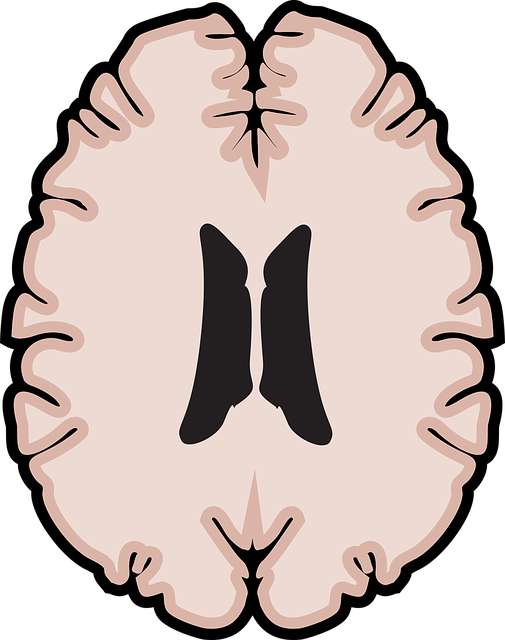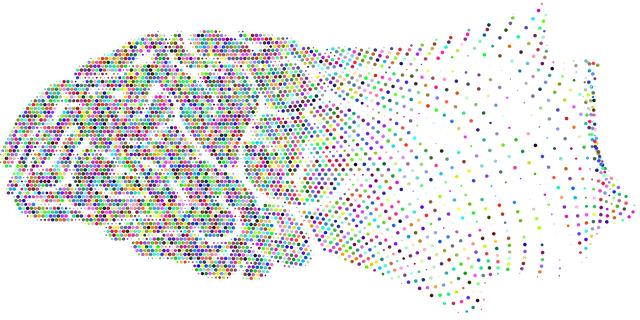Northglenn Adjustment Disorder (NAD) is a mental health condition affecting daily life with symptoms like anxiety, sleep disturbances, and physical issues. Early intervention through structured Northglenn Adjustment Disorder Therapy using evidence-based practices like CBT can improve coping skills and self-esteem. Interactive learning techniques in therapy programs enhance engagement and community building. Measuring program success through surveys, interviews, and long-term assessments ensures sustainability and positive mental health outcomes for the Northglenn community.
Mental health education programs play a pivotal role in fostering resilience and well-being, especially for communities grappling with specific disorders. This article explores the design and implementation of an educational initiative focused on Northglenn Adjustment Disorder (NAD), a common yet complex mental health challenge. We delve into understanding NAD’s symptoms and the critical role of education in early intervention. The subsequent sections guide readers through creating structured therapy programs, incorporating interactive learning, and measuring the long-term success of such initiatives, offering practical insights for healthcare professionals and educators alike.
- Understanding Northglenn Adjustment Disorder: Symptoms and Challenges
- The Role of Education in Mental Health Support
- Designing an Effective Therapy Program Outline
- Incorporating Interactive Learning Techniques
- Measuring Success and Long-term Impact of the Program
Understanding Northglenn Adjustment Disorder: Symptoms and Challenges

Northglenn Adjustment Disorder (NAD) is a mental health condition that often goes overlooked but significantly impacts individuals’ daily lives. This disorder, characterized by feelings of intense stress and difficulty adjusting to changes, can manifest in various symptoms such as persistent anxiety, irritability, sleep disturbances, and even physical complaints like headaches or stomach aches. Recognizing the subtle signs of NAD is crucial for initiating timely Northglenn Adjustment Disorder therapy.
The challenges associated with NAD go beyond the individual; they extend to social and academic environments. Those affected may struggle in school or at work due to their inability to cope with routine transitions or unexpected events. Moreover, NAD can erode self-esteem and confidence, leading to social withdrawal. However, with the right Mental Wellness Coaching Programs Development, individuals can learn effective self-care practices that boost confidence and promote mental health. These strategies include structured routines, stress management techniques, and building a strong support system—all essential components in navigating the complexities of NAD.
The Role of Education in Mental Health Support

Mental health education plays a pivotal role in fostering well-being and supporting individuals dealing with various challenges, including conditions like Northglenn Adjustment Disorder. Through structured programs, communities can empower themselves to understand mental health issues better, dispel stigma, and promote early intervention. This proactive approach is essential in ensuring effective support for those facing emotional distress or developing disorders.
Education serves as a powerful tool to initiate emotional healing processes by providing individuals with the knowledge to recognize signs of distress in themselves and others. It equips them with practical skills such as stress management workshops, conflict resolution techniques, and coping strategies, enabling proactive management of mental health. By integrating these learning opportunities into community settings, organizations can create an environment that supports holistic well-being, ultimately enhancing the resilience and overall mental health of individuals.
Designing an Effective Therapy Program Outline

When designing a therapy program for Northglenn Adjustment Disorder, it’s crucial to create a structured yet flexible outline that addresses the unique needs of individuals facing this challenge. The program should begin with an assessment phase, where therapists evaluate the client’s current mental wellness state and identify specific areas of struggle, such as anxiety, depression, or social skills deficits. This initial step is vital for tailoring interventions effectively.
Subsequently, the therapy program can be structured around evidence-based practices that foster coping skills development and self-esteem improvement. Techniques like cognitive-behavioral therapy (CBT) can help individuals challenge negative thought patterns and replace them with healthier ones. Group sessions focused on building social connections and sharing experiences can also enhance mental wellness by providing a supportive network. Regular check-ins allow therapists to monitor progress, adjust strategies as needed, and ensure clients are equipped with the tools necessary for long-term success in managing their Adjustment Disorder.
Incorporating Interactive Learning Techniques

Incorporating interactive learning techniques into mental health education programs is a dynamic approach that enhances engagement and knowledge retention among participants. These methods, tailored to suit diverse learning styles, can significantly impact the effectiveness of Northglenn Adjustment Disorder Therapy initiatives. For instance, group discussions and role-playing scenarios allow individuals to actively participate in emotional healing processes, fostering a sense of community and shared understanding.
By integrating Self-Care Practices through interactive sessions, participants gain practical tools for managing stress and maintaining mental well-being. Furthermore, healthcare provider cultural competency training, incorporating interactive elements, prepares professionals to offer tailored support to a diverse range of clients. These techniques not only enrich the learning experience but also ensure that Northglenn Adjustment Disorder Therapy programs remain relevant and impactful in addressing various mental health concerns.
Measuring Success and Long-term Impact of the Program

Measuring success and evaluating the long-term impact of a mental health education program is vital to ensure its effectiveness and sustainability. By implementing robust assessment tools, the Northglenn Adjustment Disorder Therapy initiative can track progress and identify areas for improvement. This involves collecting quantitative data through surveys and feedback forms to gauge knowledge retention and behavioral changes among participants. Additionally, qualitative methods such as interviews or focus groups can offer deeper insights into how the program has influenced individuals’ self-perception, coping mechanisms, and overall well-being.
Long-term impact assessments are crucial to demonstrate the sustainability of these initiatives. For instance, tracking participants over an extended period can reveal whether acquired skills and knowledge translate into improved mental health outcomes, reduced burnout rates among healthcare providers, and enhanced emotional intelligence in both professional and personal settings. Furthermore, evaluating the adoption of self-care routines developed during the program can contribute to a holistic understanding of its success in fostering better mental health practices within the Northglenn community.
Mental health education programs, particularly those designed for addressing Northglenn Adjustment Disorder, should incorporate a multi-faceted approach. By understanding the symptoms and challenges unique to this disorder, educators can create effective therapy program outlines that utilize interactive learning techniques. Measuring the success and long-term impact of these programs is crucial to ensuring their effectiveness in supporting individuals affected by Northglenn Adjustment Disorder. Through continuous evaluation and adaptation, we can foster sustainable mental wellness and enhance the lives of those navigating this disorder.








